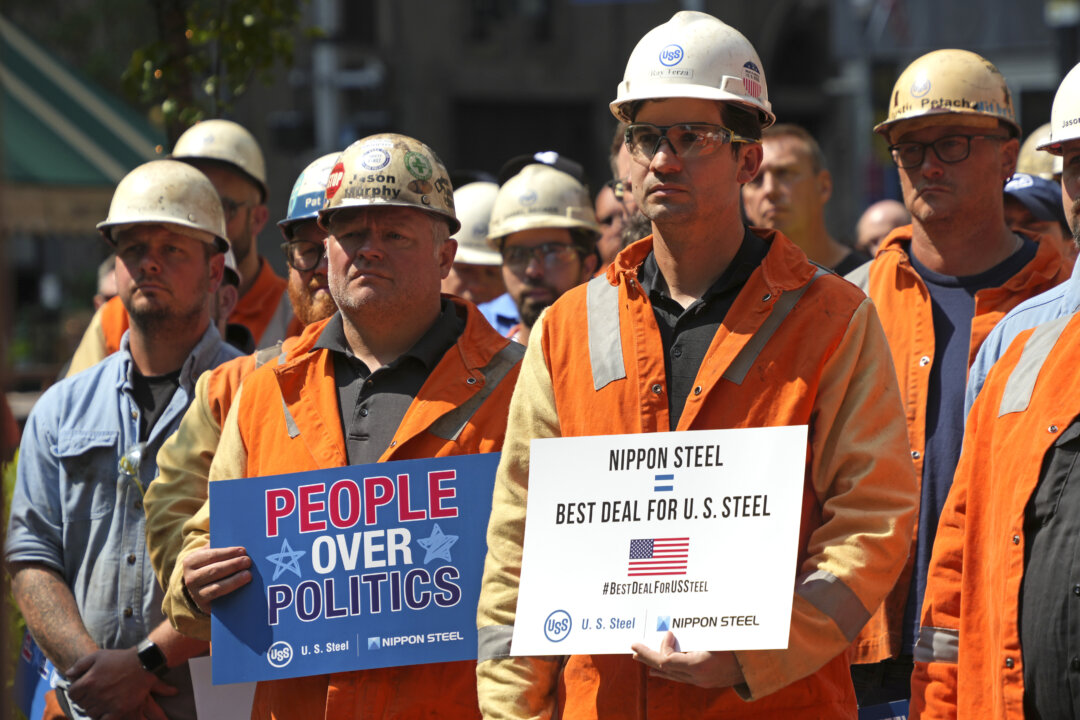Japanese Prime Minister Shigeru Ishiba has asked President Joe Biden to reverse his ban on Nippon Steel’s bid to buy U.S. Steel.
Biden blocked Nippon Steel’s acquisition in early January over national security concerns. A revised deadline to abandon the deal (now mid-June) falls under the new Trump administration. However, the president-elect opposed the deal on the campaign trail, citing the need to protect the U.S. steel industry and the legacy of the American company.
On Jan. 13, Ishiba told Japanese media that he had made his request to Biden during a trilateral video conference between the United States, Japan, and the Philippines earlier in the day.
“On the issue of U.S. Steel, strong concerns have been raised in business communities not only in Japan but also in the United States,” the prime minister said. “Such concerns are spreading in both countries, and I expressed my strong request for him to dispel them.”
According to data from the World Steel Association, the $15 billion all-cash deal would make Nippon Steel the third-largest steel manufacturer. However, the combined entity’s manufacturing capacity would still be less than half that of China’s Baowu Group, a state-owned enterprise champion under Chinese leader Xi Jinping’s industrial policy.
China has long dominated the industry, making more steel than the rest of the world combined.
On Dec. 31, 2024, to alleviate concerns about reducing American manufacturing jobs, the Japanese company proposed giving the U.S. government veto power over any post-acquisition changes in U.S. Steel’s production capacity.
Whether a Japanese company’s investment in the United States poses national security risks has been controversial.
In a report delivered to the White House in late December 2024, the U.S. Committee on Foreign Investment (CFIUS), an inter-agency panel responsible for reviewing national security risks of foreign entities’ transactions in the United States, was divided on the conclusion and left the matter in Biden’s hands.
However, on Jan. 3, Biden blocked the deal, saying that there was “credible evidence” that the transaction “threatens to impair the national security of the United States.”
Three days later, the two companies filed a federal lawsuit challenging the block of the merger as a political decision without due process. They alleged that CFIUS wasn’t able to conduct its review in good faith because of the fact that Biden had already announced that he would block the deal before the review began.
In a separate complaint, the companies also filed suit against Cleveland-Cliffs and the steelworkers union for undermining the deal. In 2023, Cleveland-Cliffs made a bid for U.S. Steel for about $7 billion, but it was rejected.
The reaction from Japan’s business community was swift and decisive. On Jan. 6, the Japanese business community voiced regret over the executive order and urged the Biden administration to clarify its rationale.
Ishiba expressed his determination to continue discussions on the issue with President-elect Donald Trump. Japanese Foreign Minister Takeshi Iwaya, who will attend Trump’s inauguration, will coordinate a potential meeting between Ishiba and Trump as early as February.

